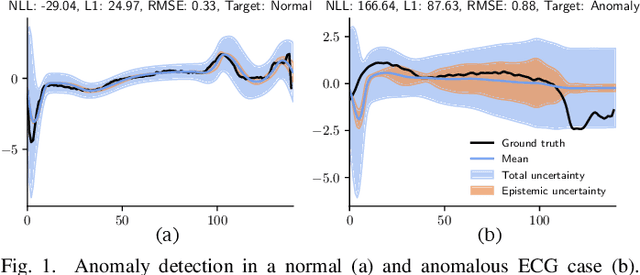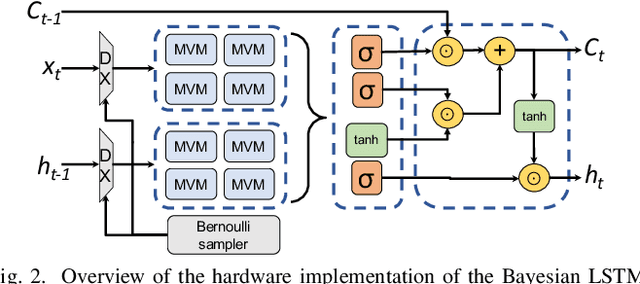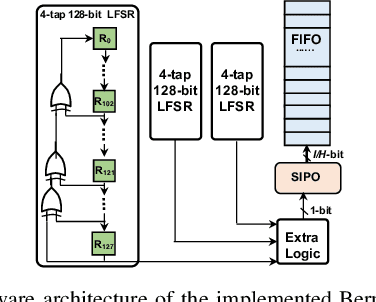High-Performance FPGA-based Accelerator for Bayesian Recurrent Neural Networks
Paper and Code
Jun 04, 2021



Neural networks have demonstrated their great performance in a wide range of tasks. Especially in time-series analysis, recurrent architectures based on long-short term memory (LSTM) cells have manifested excellent capability to model time dependencies in real-world data. However, standard recurrent architectures cannot estimate their uncertainty which is essential for safety-critical applications such as in medicine. In contrast, Bayesian recurrent neural networks (RNNs) are able to provide uncertainty estimation with improved accuracy. Nonetheless, Bayesian RNNs are computationally and memory demanding, which limits their practicality despite their advantages. To address this issue, we propose an FPGA-based hardware design to accelerate Bayesian LSTM-based RNNs. To further improve the overall algorithmic-hardware performance, a co-design framework is proposed to explore the most optimal algorithmic-hardware configurations for Bayesian RNNs. We conduct extensive experiments on health-related tasks to demonstrate the improvement of our design and the effectiveness of our framework. Compared with GPU implementation, our FPGA-based design can achieve up to 10 times speedup with nearly 106 times higher energy efficiency. To the best of our knowledge, this is the first work targeting the acceleration of Bayesian RNNs on FPGAs.
 Add to Chrome
Add to Chrome Add to Firefox
Add to Firefox Add to Edge
Add to Edge